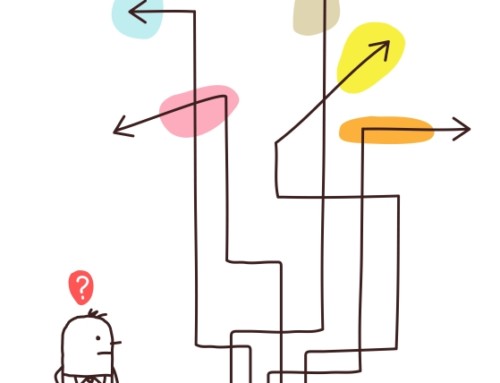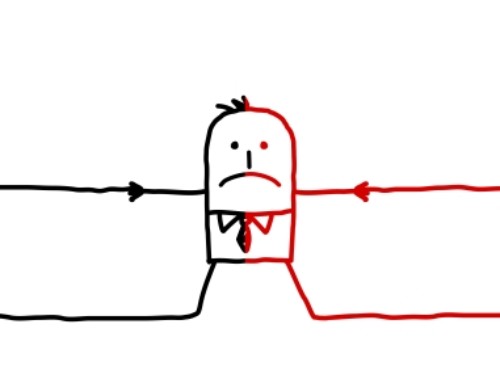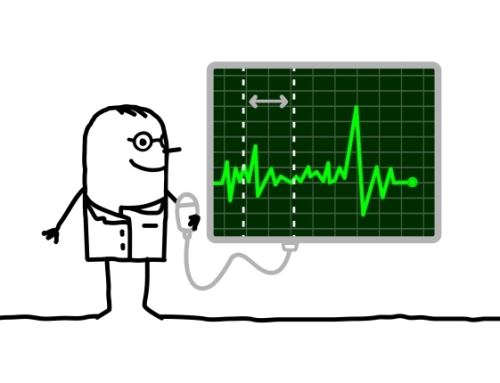In this article, I discus how making erroneous judgments about ourselves, others and our circumstances based on the emotions we are experiencing can add to our distress.
Making judgments and decisions based on the emotions we are experiencing is a strategy many of us have been advised to follow. “Go with what your gut tells you,” “It just doesn’t’ feel right”, “My spidey sense is telling me something” and “My intuition is my best guide” capture the essence of this point of view.
In many instances, making judgments and decisions based on our feelings serves us well. For example, on many occasions our anxiety system becoming activated to prepare us to face challenges and threats. And many people have benefited from avoiding getting involved in a personal or business relationship because of bad feelings on which they could not put their fingers.
Having said that, there is evidence that we rely too much on our emotions to guide us in making judgments and decisions. That is, on many occasions the feelings we experience are not accurate indicators of ourselves, others or our circumstances. Relying on our feelings in these instances can add to our distress and create problems for us and others. In the following sections, I will provide details on how the cognitive distortion known as ‘emotional reasoning’ works, how it can lead us astray and what steps you can take to counteract it.
What are cognitive distortions?
Emotional reasoning is one of several ‘cognitive distortions’. These are particular ways in which the thoughts we have skew toward focusing on negative information. Examples include jumping to conclusions (coming to a conclusion based on insufficient evidence), mind-reading (assuming someone is thinking or feeling something without sufficient evidence), overgeneralization (assuming that one event occurring will necessarily lead to another event occurring) and fortune telling (assuming that events will necessarily occur in the future).
The effect of cognitive distortions is to create ‘hot thoughts’. These are negatively skewed thinking patterns which result in the intensities of the emotions we experience increasing to levels which are difficult to manage.
Emotional reasoning as a cognitive distortion
Emotional reasoning as a cognitive distortion entails inaccurately evaluating yourself and your circumstances, including people with whom you interact, based on the emotions you are experiencing. For example, if you are experiencing anxiety you may incorrectly conclude that an adverse or dangerous event may occur or that you will not be able to cope with a future outcome.
If you are experiencing depression, you may incorrectly conclude that you are worthless, your current life is terrible and your future is hopeless. If you are experiencing anger, you may incorrectly conclude that someone with whom you interact is uncaring or does not respect you. If you are experiencing frustration, you may incorrectly conclude that you are not making any progress in key areas of your life such as work or school and relationships. And if you are experiencing guilt, you may incorrectly conclude that you are responsible for causing harm which is unforgivable.

But is emotional reasoning a cognitive distortion?
You may wonder why emotional reasoning is considered a cognitive distortion. After all, when we experience certain emotions there is often a good reason based in reality for experiencing them.
On this point, consider the above examples: When you experience anxiety, there may indeed be an adverse or dangerous event on the horizon and you may indeed not be able to cope with a future outcome. When you feel depressed, there may indeed be negative aspects of yourself, your current life and your future which are based in reality. When you experience anger, there may indeed be someone with whom you interact who is uncaring or does not respect you. When you experience frustration, there may indeed be evidence of your not making progress in key areas of your life such as work or school and relationships. And when you are experiencing guilt, you may have indeed done something wrong which is difficult for you or others to forgive.
So given these facts, why is reasoning from the emotions you experience considered a cognitive distortion? I will discuss this in the next section.
When emotional reasoning is a cognitive distortion
Even though there may often be good reasons for experiencing your emotions, emotional reasoning also will often function as a cognitive distortion. The reason is that the intensity of the emotions we experience is often out of proportion to the evidence.
So when you experience anxiety, the intensity is often too high because you are overestimating the likelihood of an adverse or dangerous event occurring or underestimating your ability to cope with a future outcome. When you feel depressed, the intensity is often too high because you are thinking in an overly negative way about yourself, your current life and your future. When you experience anger, the intensity is often too high because you are thinking in an overly negative way about another person’s character or about how they feel about you. When you experience frustration, the intensity is often too high because you are thinking in an overly negative way about the extent to which you are not making progress in key areas of your life such as work or school and relationships. And when you experience guilt, the intensity is often too high because you are thinking in an overly negative way about the extent to which you are responsible for causing harm and whether it is forgivable.
How to address emotional reasoning
There are several steps you can take to address emotional reasoning as a cognitive distortion. These include:
(1) Be aware that the intensity of the emotions you are experiencing may not be an accurate reflection of you, others or your circumstances;
(2) Use evidence to accurately assess the hot thoughts which are associated with your strong emotional reactions;
(3) Substitute more accurate ‘balanced thoughts’ for your hot thoughts and practice thinking these thoughts instead of hot thoughts when you notice that you are having strong emotional reactions;
(4) Take action to address any issues which need to be addressed which are contributing to your strong emotional reactions. It will be easier for you to do this if you are thinking balanced thoughts rather than hot thoughts.
A psychologist who is skilled in cognitive behavioural therapy (CBT) can guide you in the implementation of the strategies discussed in this article.
May you address the cognitive distortion known as ‘emotional reasoning’ when it occurs,
-Dr. Pat






Leave A Comment